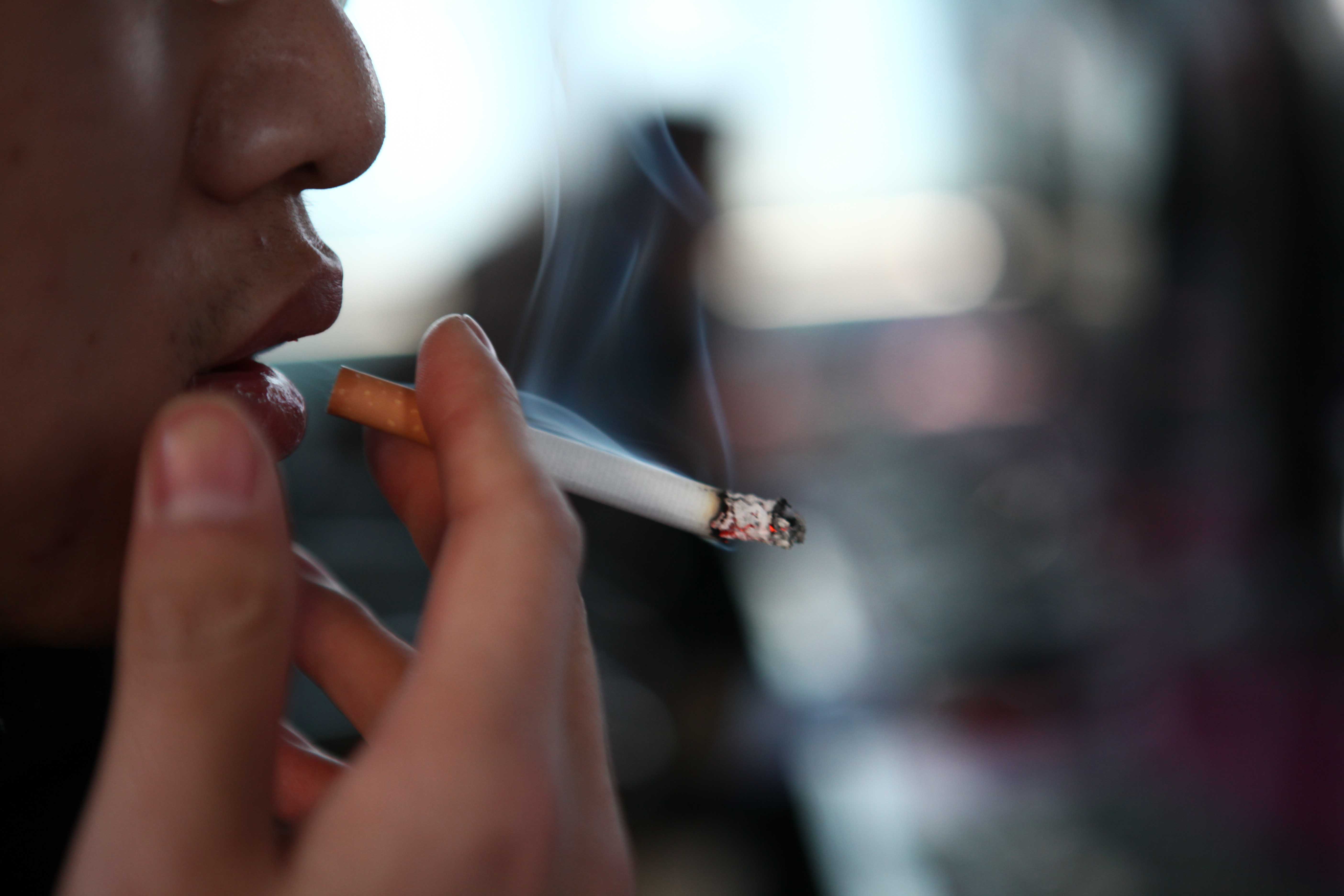Rising cancer rate leads to calls for smoking controls
|
 A man smokes a cigarette in Beijing in January 2011. Wang Jing / China Daily |
The high rate of lung cancer in Beijing, which has increased dramatically over the past decade, shows the necessity for stricter control of smoking, experts said.
The incident rate of the disease in 2010 was 56 percent higher than it was in 2001, with an average annual growth rate of 2.4 percent, according to the Beijing Health Bureau.
Lung cancer also accounted for a large proportion of malignant tumors that occurred in residents in 2010. It is not only the most prevalent kind of tumor in male cancer patients, but also the second-most prevalent in female cancer patients, after breast cancer.
"The primary cause for the disease is smoking," said Lei Haichao, the bureau's deputy director.
"More than 90 percent of lung cancer cases are deemed as caused by smoking, including passive smoking. The risk for people who live with smokers to develop lung cancer is 20 to 30 percent higher than those who don't."
According to Zhi Xiuyi, an expert of thoracic surgery at Xuanwu Hospital in Beijing, more people getting annual physical checkups is a reason for the higher incidence rate because more lung cancer cases are being discovered than they were when physical exam was not as popular.
Also, an aging population tends to heighten the incidence rate.
However, he emphasized that smoking, a major cause of the disease, needs to be rooted out.
"The number of smokers has barely dropped over the years in Beijing, and passive smoking remains a public health issue," he said.
"The prevalence of lung cancer in the area right now is a reflection of the prevalence of smoking 20 years ago," said Yang Gonghuan, deputy director of the nongovernmental China Association on Tobacco Control, suggesting that a number of lung cancer patients this year were exposed to tobacco on a regular basis 20 years ago.
Yang Jie, deputy director of the Chinese Center for Disease Control and Prevention's tobacco control office, agreed.
"It's the result of accumulation. The number of smokers and those who are exposed to secondhand smoke has been so huge since the 1980s that it began to take effect now by lifting the prevalence of lung cancer year by year," he said. "If we start stricter tobacco control right now, we may see the incidence rate drop 20 years later."
To deal with the disease, the capital is working on several projects.
This March, the Beijing Health Bureau and the Office of Tumor Prevention and Treatment of the Beijing Cancer Hospital carried out a project that provided screening of early-stage lung cancer for free for 312 residents aged 55 to 69, and who have been smoking on a daily basis for at least 10 years, and found two early stage cases.
It was a pilot project for a screening program of early-stage cancers, which the city's government is working on under the requirement of the Ministry of Health. According to the ministry, the city will assess at least 10,000 residents for their risks of getting lung cancer, and include at least 2,000 people in the early- stage screening of the disease within a year.
However, Yang Gonghuan said she hopes to see a more fruitful outcome in the city's tobacco control campaign.
"After all, preventing the disease is much less costly than treating it," she said.
Beijing issued a smoking ban in public areas in 1995. In 2008, it issued another government order that stated that entertainment businesses, such as restaurants and Internet cafes, can set aside smoking areas, but should ban smoking in other areas.
"First, it's not a total smoking ban. Second, it's not strictly followed in public places. As a result, the exposure to tobacco hasn't dropped much," Yang Jie said.
























